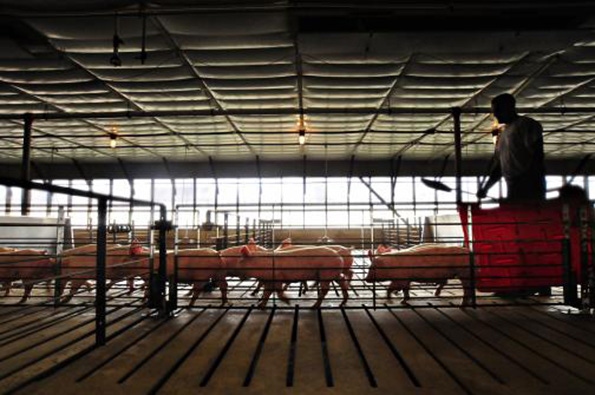To ensure we continue to provide an uninterrupted supply of high-quality protein to consumers, we need federal support to prevent a severe labor shortage.
March 25, 2020

In wake of the novel coronavirus responsible for the COVID-19 pandemic that struck the globe in early March, the health and well-being of Americans have been paramount in the precautionary measures enacted by federal and state government officials — as it should be. With each new precautionary order made by government officials, however, comes a domino effect — impacting virtually every economic sector in the United States in some capacity — and the pork industry is no exception.
For years, the U.S. pork industry has suffered from a severe labor shortage on farms and in packing plants. Populations in rural areas are on the decline. Unemployment in recent years has been as low as 2.6% in some pork production communities. As a result, hog farmers and plant operators are highly dependent on foreign-born workers. Unfortunately, visa programs providing access to these workers are not effective for non-seasonal livestock agriculture. Despite this challenge, packing plants have operated with healthy capacity levels to harvest hogs sent to market. According to industry observers, this may soon change, and the COVID-19 situation could accelerate timing of this challenge.

How does this relate to the COVID-19 pandemic?
By way of background, the pork industry suffered a pork plant capacity shortage just 20 years ago, resulting in deep and lasting financial consequences. Without a solution to the labor shortage on farms and in packing plants, coupled with the disruptions that COVID-19 brings, history may repeat itself.
The pork industry, a farm sector that operates year-round, uses the H-2A visa program for specialized work, but cannot use the program for most labor needs because of its seasonal limitation. Hog farmers are major users of the TN visa program, which taps labor from Mexico. The decision by the U.S. Department of State to suspend visa processing in Mexico threatens to worsen the labor shortage in the pork industry and across U.S. agriculture. The U.S. pork industry is very concerned about this decision.
Meantime, our industry will continue to work with Congress on visa reform for non-seasonal livestock agriculture. We need a larger pool of foreign-born workers to help ensure an uninterrupted supply of U.S. pork to consumers here at home and around the globe.
I want to underscore that our farms and plants are not in crisis today. The U.S. pork industry is doing its part to ensure American kitchens are well-stocked. To ensure we continue to provide an uninterrupted supply of high-quality protein to consumers, we need federal support to prevent a severe labor shortage.
In Ohio, schools are closed for at least three weeks to prevent the community spread COVID-19. Because we care for our people and our animals, we are challenged with doing all we can to help our team. This includes facilitating alternative childcare plans that allow our team to maintain continuity of work, as well as prioritize caring for their children. This enables us to be able to continue producing the food that is so important to our country's infrastructure, as evidenced by the fact we are listed as a critical infrastructure industry by the Department of Homeland Security.
Unfortunately, my situation is not unique and many others in our industry have the same concerns. That's why the National Pork Producers Council is pursing provisions in the congressional relief package to provide financial support for childcare for farm and plant workers. That would go a long way toward providing the flexibility U.S. pork production workers need to provide an uninterrupted supply of high-quality protein.
While the U.S. pork supply chain is operating, we need to head off potential disruptions.
As a fourth-generation farmer in rural Ohio, I speak in unison with Ohio's pig farmers in asking our federal and state officials to work with the U.S. pork industry to mitigate the impact on farmers like me, and the communities that depend on our food supply. With these looming challenges, we need new solutions for worker visas and a support plan for pig farmers impacted by bottlenecks in the supply chain.
Pat Hord, president of Hord Family Farms, is a fourth-generation pig farmer in Bucyrus, Ohio.
Source: Pat Hord, who is solely responsible for the information provided, and wholly owns the information. Informa Business Media and all its subsidiaries are not responsible for any of the content contained in this information asset.
You May Also Like



